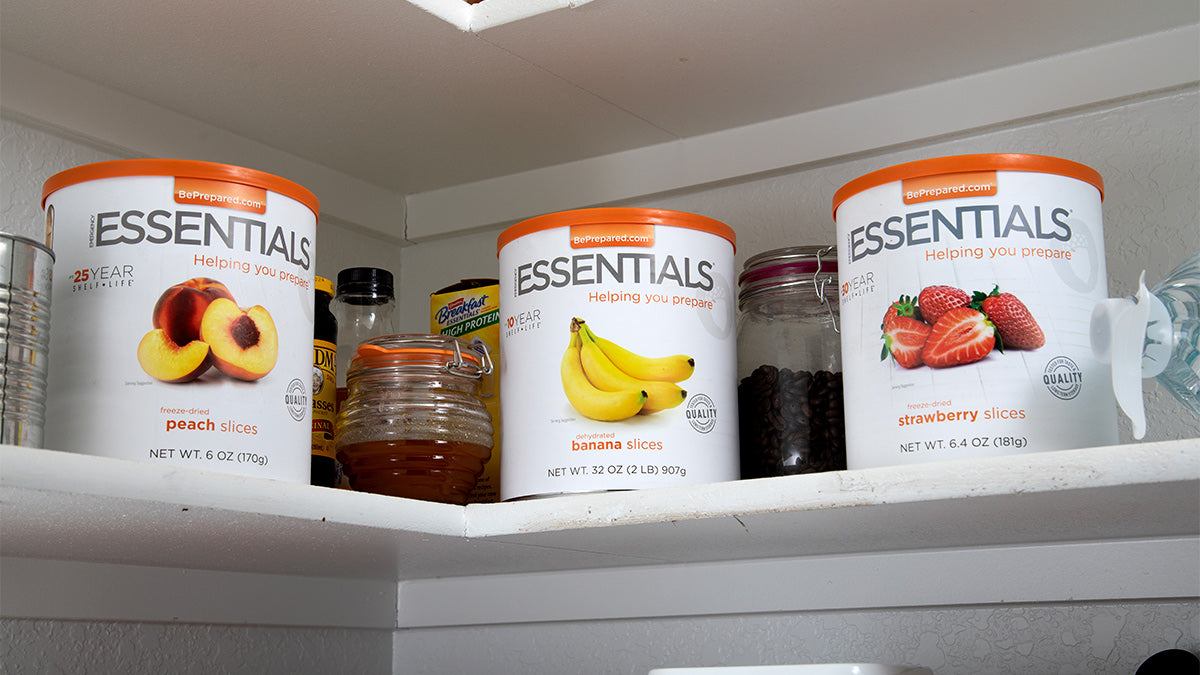What comes to mind when you hear the word “preparedness?”
Lots of people think that emergency preparedness means stockpiling for the zombie apocalypse or constantly worrying about worst-case scenarios.
But the truth is exactly the opposite… Being prepared is about creating a foundation of security that lets you worry less, not more.
The Science of Feeling Secure
Psychologists have long understood that uncertainty is a major source of stress for the human brain. When we don't know what might happen or how we'll handle potential problems, our minds naturally begin to spin with "what ifs."
"What if there's a power outage when my phone doesn’t have a lot of battery?"
"What if my car breaks down on that remote stretch of highway with no cell service?"
"What if the grocery stores run out of food and I don't have anything at home?"

Our brains are literally wired to think of the worst-case scenarios. It’s a survival mechanism.
The problem is, this constant mental rehearsal of potential disasters—without solutions—is what creates stress and panic. Our brains get stuck in a loop of anxiety without resolution.
The solution? You guessed it, it’s addressing these worries and actually doing something about them.
Three Ways Preparedness Creates Calm
1. Control in the Chaos
When unexpected events happen, prepared families have options that others don't.
During the California wildfires, families with go-bags ready could evacuate without the additional stress of making split-second decisions about what to take. Those with emergency food and water could shelter in place safely when evacuation routes became congested.

Having basic supplies ready doesn't prevent emergencies, but it does give you choices when they happen—and having choices is profoundly calming in situations that otherwise feel out of control.
2. Daily Peace of Mind
The benefits of preparedness aren't just for major disasters—they show up in everyday life, too.
When a busy day gets away from you and the grocery store is closed, having a well-stocked pantry means dinner isn't a crisis. When your child announces at 9 PM that they need supplies for tomorrow's school project, having extras on hand saves the day.
These small moments of "I've got this" build a steady confidence that extends to bigger challenges. And the peace of mind that comes from knowing you're ready for small disruptions naturally extends to larger ones.
3. Family Security
Children are remarkably perceptive about their parents' stress levels. When adults panic during disruptions, kids absorb that anxiety.
But when parents can remain calm and implement a plan, children learn valuable lessons about resilience.
This sense of capability and confidence is one of the greatest gifts we can give our children—and ourselves.
Finding the Balance: Practical Steps to Peace of Mind
Ready to build your own foundation of calm preparedness? Here's how to start:
1. Identify your most likely scenarios.
Begin by considering what disruptions are common in your region. Do you face seasonal storms, power outages, or other predictable challenges? These are your priority concerns, not distant unlikely events.
2. Start with basics that serve double-duty
Focus first on supplies and skills that are useful in both emergencies and everyday life. A good water filter, for example, serves you during camping trips and power outages alike.
3. Build skills that make you feel competent
Learning basic first aid, simple home repairs, or food preservation techniques creates confidence that extends far beyond emergency scenarios. These skills become part of who you are, not just what you do in a crisis.

The key is taking small, manageable steps rather than trying to prepare for everything at once. Each practical action you take builds not just your physical readiness, but your psychological resilience.
From Preparation to Peace
Only when you’ve got tomorrow covered… You can start enjoying today.
You can enjoy time with your loved ones without your mind drifting to worst-case scenarios. You can have a meal and savor the taste. You can sleep more soundly at night.
Each small step you take builds not just your resilience to external events, but your internal sense of capability and calm.
Do you want a way to stock up your pantry and get real peace of mind without breaking the bank? Check out our new 3-Pack Collection. These are our most popular stockpile staples you know and love in cost-saving three-packs!
What small step will you take today to build your own foundation of calm preparedness? Let us know in the comments below!

